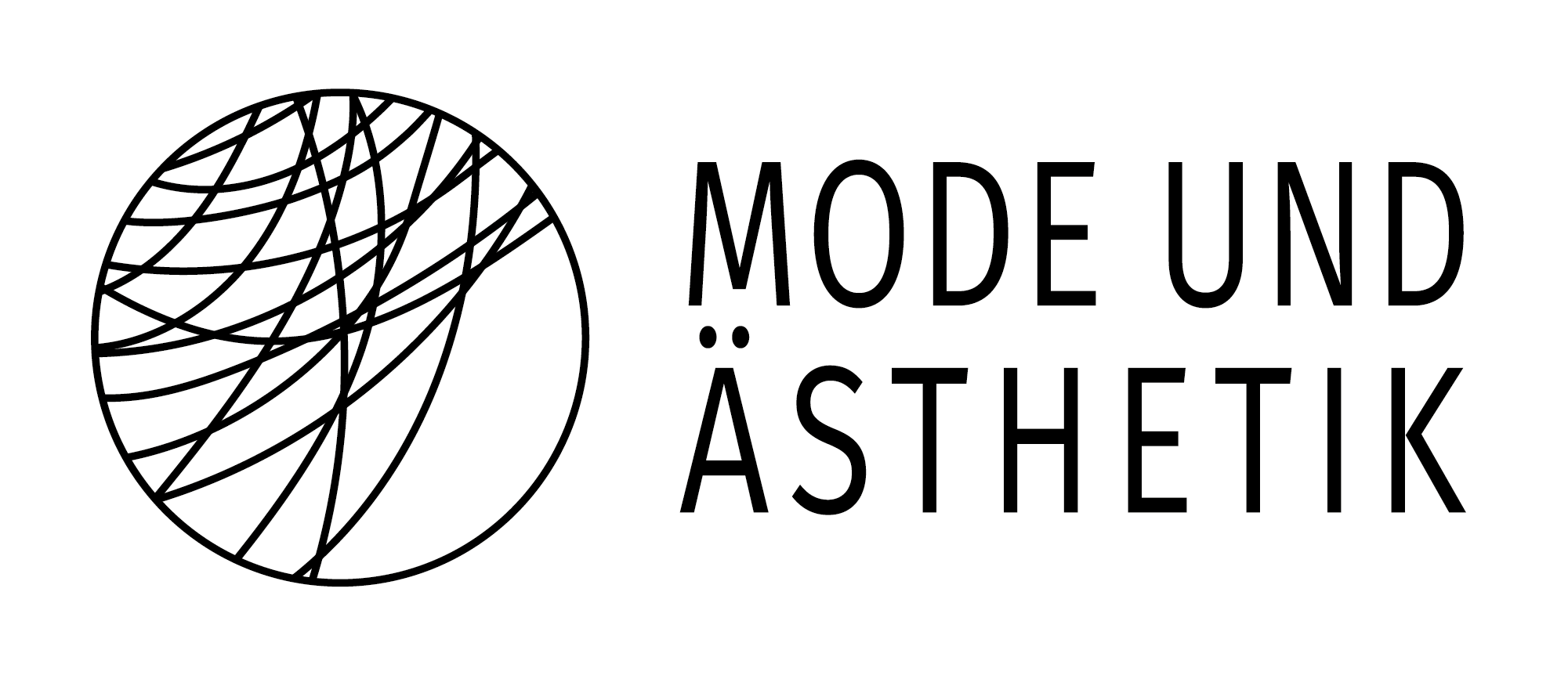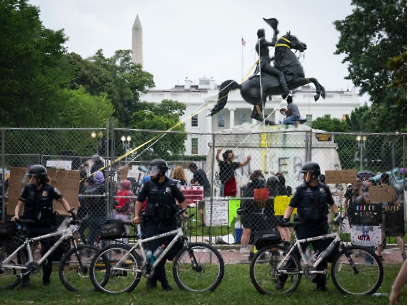Decolonizing Monuments. Critical Reflections on Aesthetics and Memory in a Post/Colonial Context
Since #Rhodesmustfall – when in 2015 University of Cape Town, South Africa students demanded the removal of the Cecil Rhodes statue from the campus as a sign of protest against the politician’s colonialist and oppressive politics – anti-racist and anti-colonial protests in form of media-staged monument topplings have shaped the cityscapes, especially those in former colonized regions. In Southern USA, the region’s 'conqueror' Juan de Oñate has fueled the debate; in Santiago de Chile the independence fighter Bernardo O'Higgins is dragged off his pedestal; and in Belgium the statue of Leopold II is marked with the George Floyd’s last words when being murdered by police officers „I can't breathe“.
Under the hashtag #statuesmustfall, an activist community is mobilized, which, by removing, dragging and symbolically violating colonial monuments, is initiating a global debate on how to deal with the visualized traumatic memory of colonial oppression and racial hatred. These subversive reinterpretations and re-semantizations are accompanied by a demand for the visualization of 'southern' memory cultures. The media staging of these monument topplings also questions the status of the figurative monument as a pictorial representative, as a kind of effigy. This form of post-colonial iconoclasm is juxtaposed with positions of conservative preservation as well as those calling for a less radicalized, more complex debate – also regarding the appropriation of iconoclastic practices from right-wing and fundamentalist circles, such as the attack on numerous artworks in the National Museums in Berlin in October 2020. Simultaneously with the statues-must-fall movement, numerous dissenting voices precisely demand the preservation of and active intellectual debate on colonial monuments, not least to counteract a practice of forgetting.
Based on recent and current activist protests, the lecture series examines the relationship between postcolonial iconoclasm and preservation and provides a critical discussion on the forms of representations of colonial memory in urban and artistic spaces. Based on postcolonial and decolonial theoretical approaches, the lectures will critically reflect the entanglements of colonial memory, aesthetics, and the (de)colonization of (urban) space and will question them from an art and visual theoretical perspective.
The lecture series is a cooperation of Rhea Dehn Tutosaus, M.A. / Prof. Dr. Alexandra Karentzos (Technical University Darmstadt) and Prof. Dr. Miriam Oesterreich (University of the Arts Berlin)
Program:
20 May 2021, 18:00-19:30 CET
Analays Alvarez Hernandez (Université de Montréal)
To Monument or Not to Monument? On the Contemporary Crisis of Commemoration and the Forever Dilemma (Engl.)
10 June 2021, 18:00-19:30 CET
Ada Pinkston (Monument Lab, Townson University)
Empty Pedestals or The Aesthetics of Truth (engl.)
01 July 2021, 18:00-19:30 CET
Leena Crasemann (Universität Hamburg) / Anne Röhl (Universität Siegen)
Verhüllen enthüllen. Textile Handlungen als postkolonialer Protest (dt.)
08 July 2021, 18:00-19:30 CET
Tomas Macsotay (Universitat Pompeu Fabra, Barcelona)
Do monuments have a capacity for ghostly return? (engl.)
The event will be held digital via Zoom.
If you wish to attend, please register, free of cost, via soeker@mode.tu-darmstadt.de
Denkmäler dekolonisieren.
Kritische Reflexionen zu Ästhetiken und Erinnerung im post/kolonialen Kontext
Seit #Rhodesmustfall, als 2015 Studierende der University of Cape Town (UCT), Südafrika die Entfernung der auf dem Campus stehenden Statue Cecil Rhodes als Zeichen des Protests gegen dessen kolonialistische Unterdrückungspolitik forderten, prägen die antirassistischen und antikolonialen Proteste das Bild zahlreicher Städte gerade auch ehemaliger Kolonialgebiete in Form des medial inszenierten Denkmalsturzes. Im Süden der USA entzündet sich die Debatte am ‚Eroberer‘ der Region Juan de Oñate, in Santiago de Chile wird der Unabhängigkeitskämpfer Bernardo O’Higgins vom Sockel gezerrt, und in Belgien wird die Statue Leopolds II mit den letzten Worten des durch US-Polizeigewalt ermordeten George Floyd „I can’t breathe“ markiert. Unter dem Hashtag #statuesmustfall mobilisiert sich eine aktivistische Community, die mit dem Entfernen und Schleifen von und symbolischen Gewalthandlungen an kolonialen Denkmälern auch eine globale Debatte über den Umgang mit der bildgewordenen Erinnerung an koloniale Unterdrückung und Rassenhass initiiert. Mit den subversiven Umdeutungen und Überschreibungen geht die Forderung nach der Sichtbarmachung ‚südlicher‘ Erinnerungskulturen einher. Die mediale Inszenierung dieser Denkmalstürze hinterfragt ebenso den Status des figürlichen Denkmals als bildlichen Stellvertreter, gleichsam in effigie. Dieser Form des postkolonialen Ikonoklasmus stehen Positionen konservativer Bewahrung ebenso gegenüber wie solche, die eine weniger radikalisierte, komplexere Auseinandersetzung fordern – auch im Hinblick auf die Aneignung ikonoklastischer Praktiken aus rechten und fundamentalistischen Kreisen wie mutmaßlich der Anschlag auf zahlreiche Kunstwerke in den Staatlichen Museen Berlin im Oktober 2020. Parallel zur Statues-must-fall-Bewegung fordern zahlreiche Gegenstimmen gerade die Bewahrung von und aktive intellektuelle Auseinandersetzung mit kolonialen Denkmälern, nicht zuletzt, um einer Praxis des Vergessens entgegenzuwirken.
Im Rahmen der Vortragsreihe „Denkmäler dekolonisieren“ soll auf der Grundlage der jüngeren und aktuellen aktivistischen Proteste nach dem Verhältnis von postkolonialem Ikonoklasmus und Bewahrung gefragt werden und eine kritische Auseinandersetzung der Repräsentationsformen kolonialer Erinnerung stattfinden. Unter Einbeziehung postkolonialer und dekolonialer theoretischer Ansätze sollen Verknüpfungen von Ästhetik, kolonialer Erinnerung und (De)kolonisierung kritisch reflektiert werden und aus kunst- und bildtheoretischer Perspektive befragt werden.
Konzeption und Durchführung:
Rhea Dehn Tutosaus, M.A./ Prof. Dr. Alexandra Karentzos (Technische Universität Darmstadt)
Prof. Dr. Miriam Oesterreich (Universität der Künste Berlin)
Die Veranstaltung wird digital über Zoom stattfinden.
Bei Interesse registrieren Sie sich bitte unter soeker@mode.tu-darmstadt.de







